Interprofessional STEM Scholars Program Teaches 4th/5th Graders About Alzheimer’s Disease
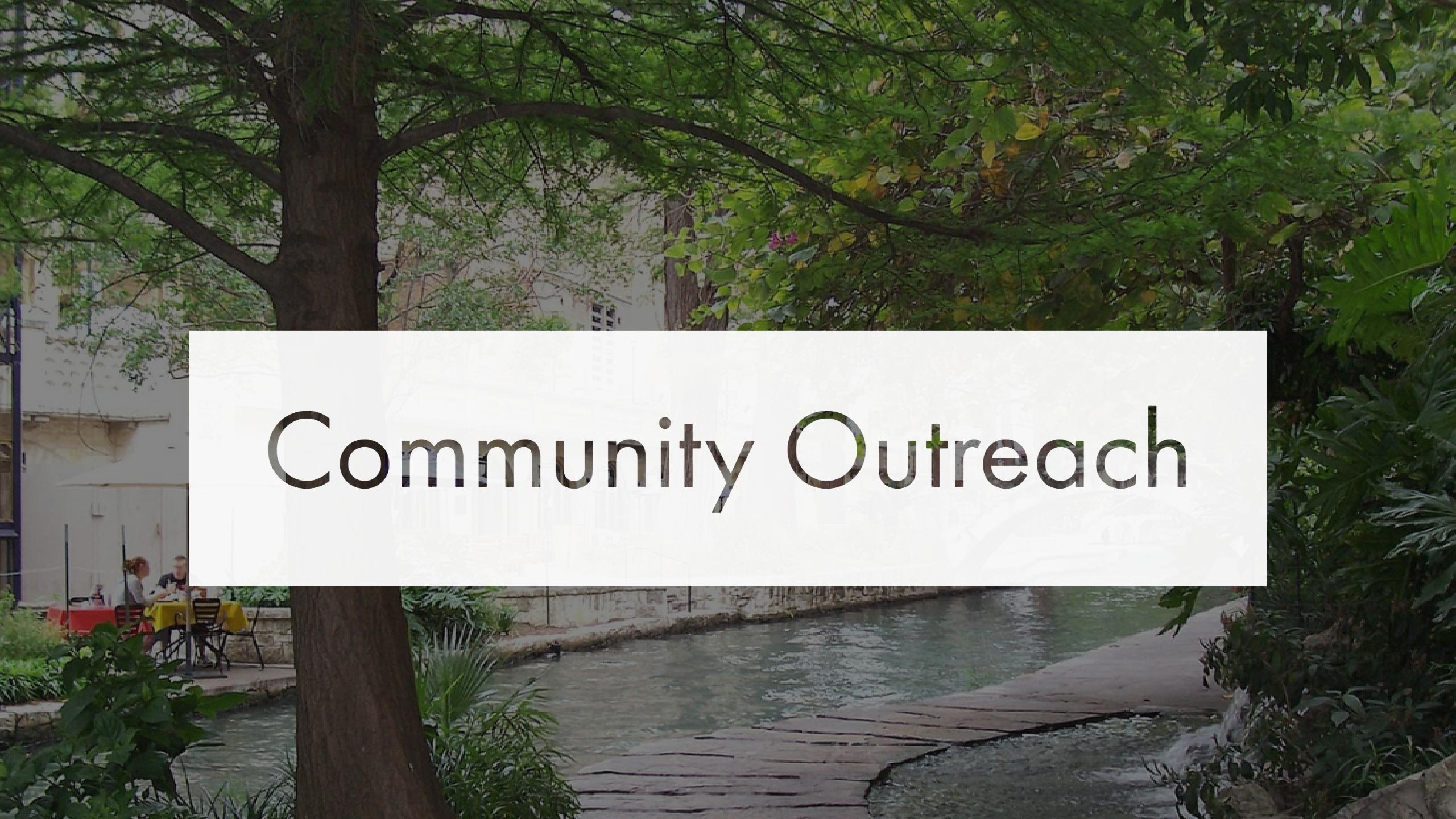
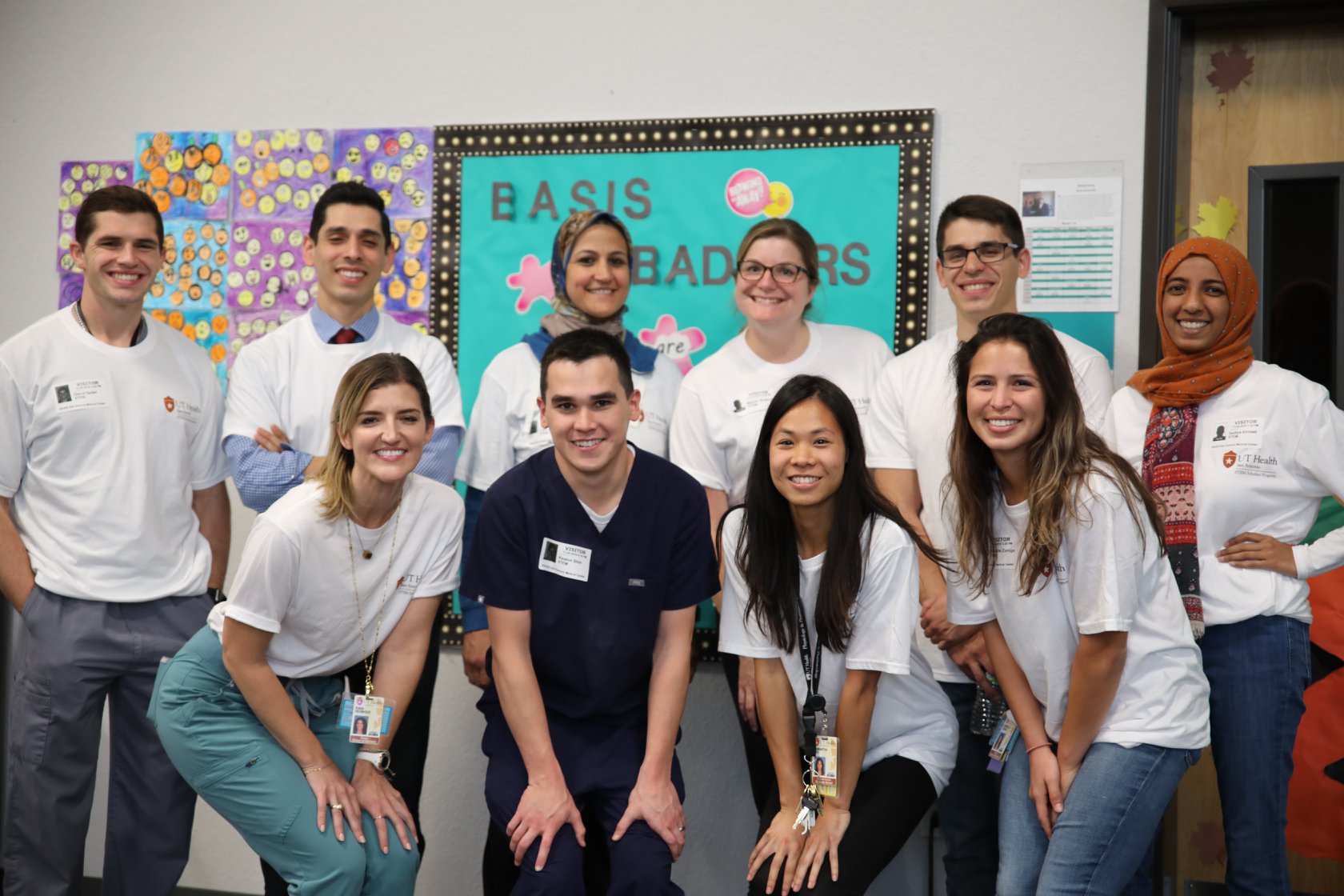
The STEM Scholars Program, a new interprofessional community outreach program at UT Health San Antonio provides a platform for dental, graduate, health professions, medical and nursing students to interact and collaboratively design and present health-related topics at local K-12 schools. The topics chosen for the pilot run are diabetes, cancer, and Alzheimer’s disease.
With the help of Dr. Ryan Hamilton and Bettina Clutts, teachers at Basis San Antonio Primary – Medical Campus, parents of elementary students from 4th and 5th grade classes received invites for the presentation as a voluntary afterschool program, from 4 p.m. to 5 p.m. With the program garnering great interest, the sessions were restricted to 50 students from the school.
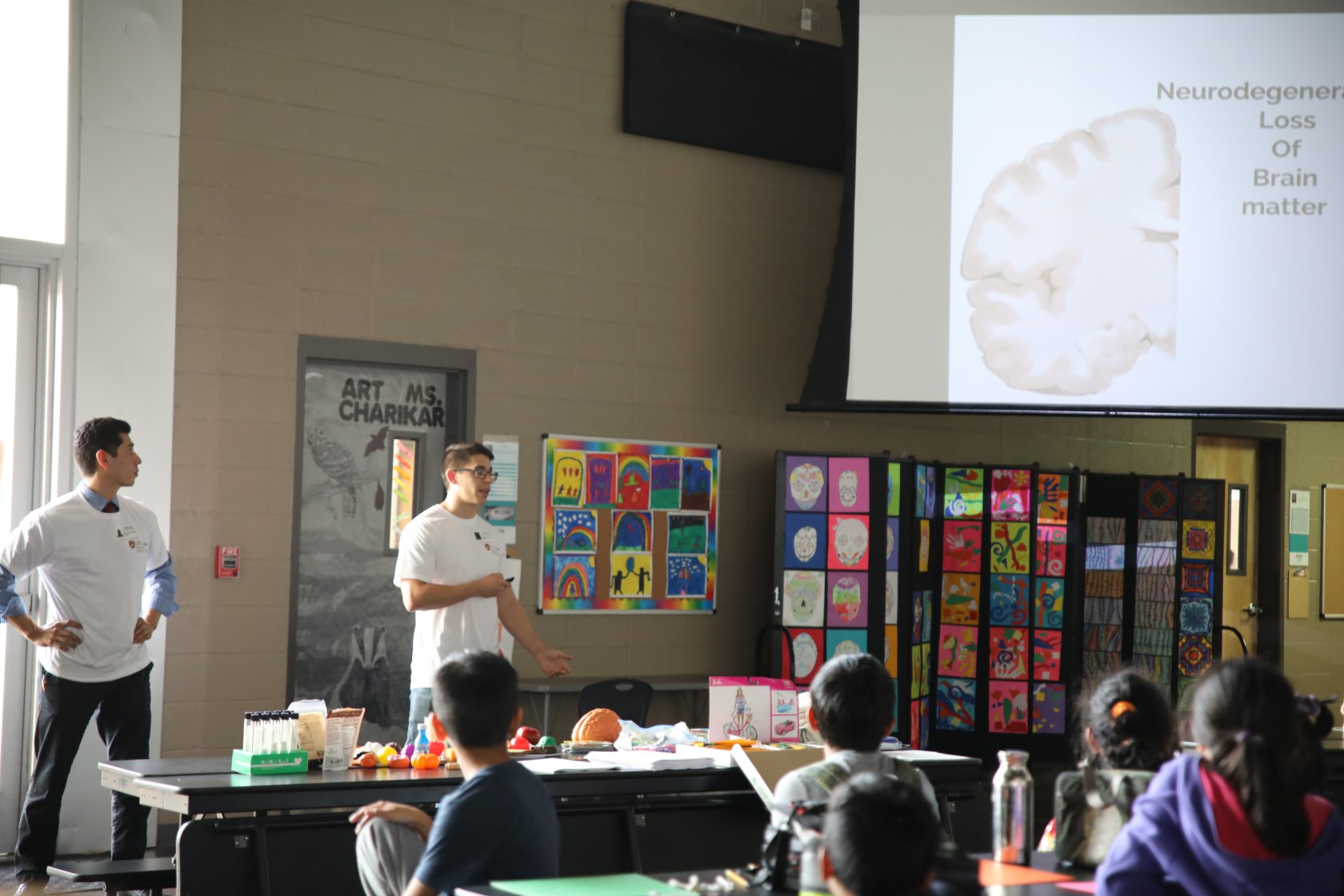
The third presentation was about neurodegeneration/Alzheimer’s Disease/aging. During the lesson, the students took a pre-quiz and then listened to a lecture created by the STEM Scholars team.
“Neurodegeneration is the loss of brain matter,” explained Adrian Beckmann, a student in the Cell Biology, Genetics, and Molecular Medicine discipline in the Graduate School of Biomedical Sciences.
He explained that when we see patients who had Alzheimer’s disease, scientists can see a substantial loss of neurons.
“We don’t really know why neurons are loss but age is definitely a factor,” Beckmann said.
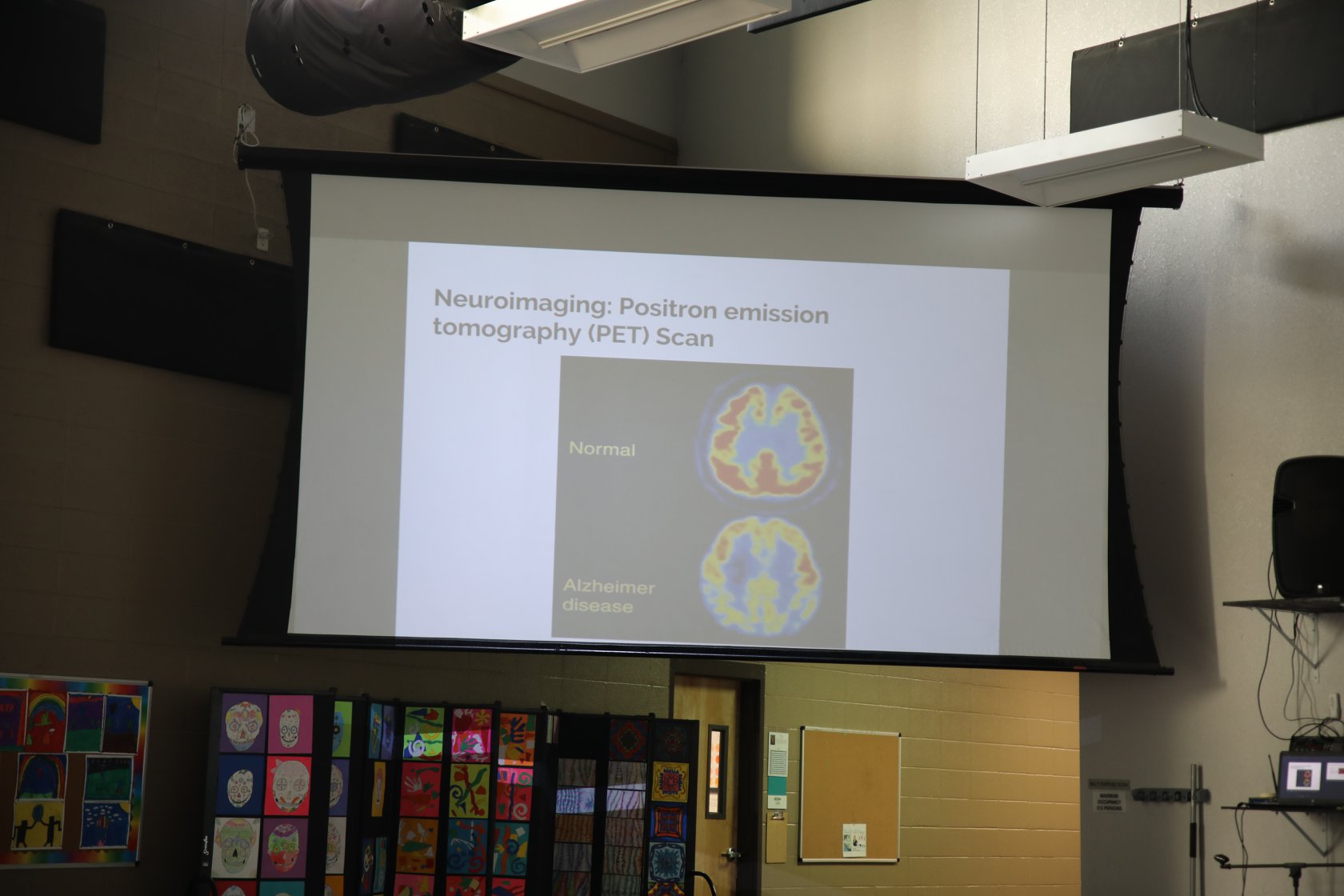
Ivan Rubalcava explained that in the 1900’s, Dr. Alois Alzheimer’s had a patient named Augusta who was suffering from delusions, memory loss, rapid mood changes and lacked a sense of time.
It wasn’t until after her death that he was able to look under the microscope and noticed that her Amyloid-β plaques looked different.
Today, scientists still haven’t found a cure for Alzheimer’s disease but have found that advanced age (over 65), genetics/family history, and the mouth infection Porphymonas gingivalis are factors.
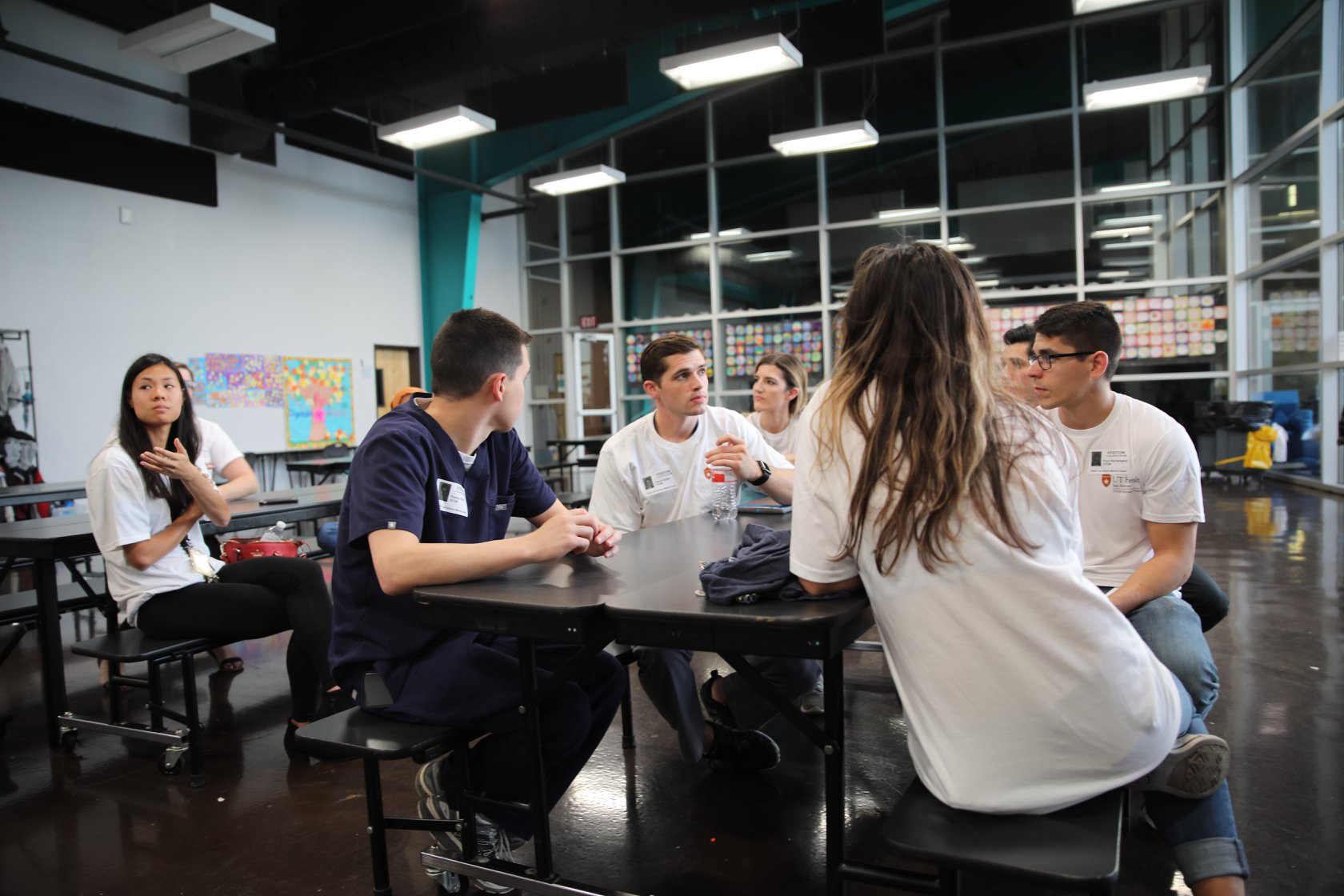
Ayled Maldonado, a student in the School of Nursing, spoke about early warning signs that patients may display such as memory loss, difficulty preforming tasks, problems with language, to name a few. Despite the known warning signs, it is still difficult to diagnose Alzheimer’s Disease specifically as there are are many other conditions of neurodegeneration with similar symptoms.
“We can’t really diagnose Alzheimer’s until death when we get a slice of the brain and look at it but we still have ways to help identify it while patients are alive,” Maldonado said.
Doctors will use brain imaging such as an MRI/PET scan, cognitive assessments, and analyze behavioral history to help with the diagnosis. Dentists also can help patients in the clinic.
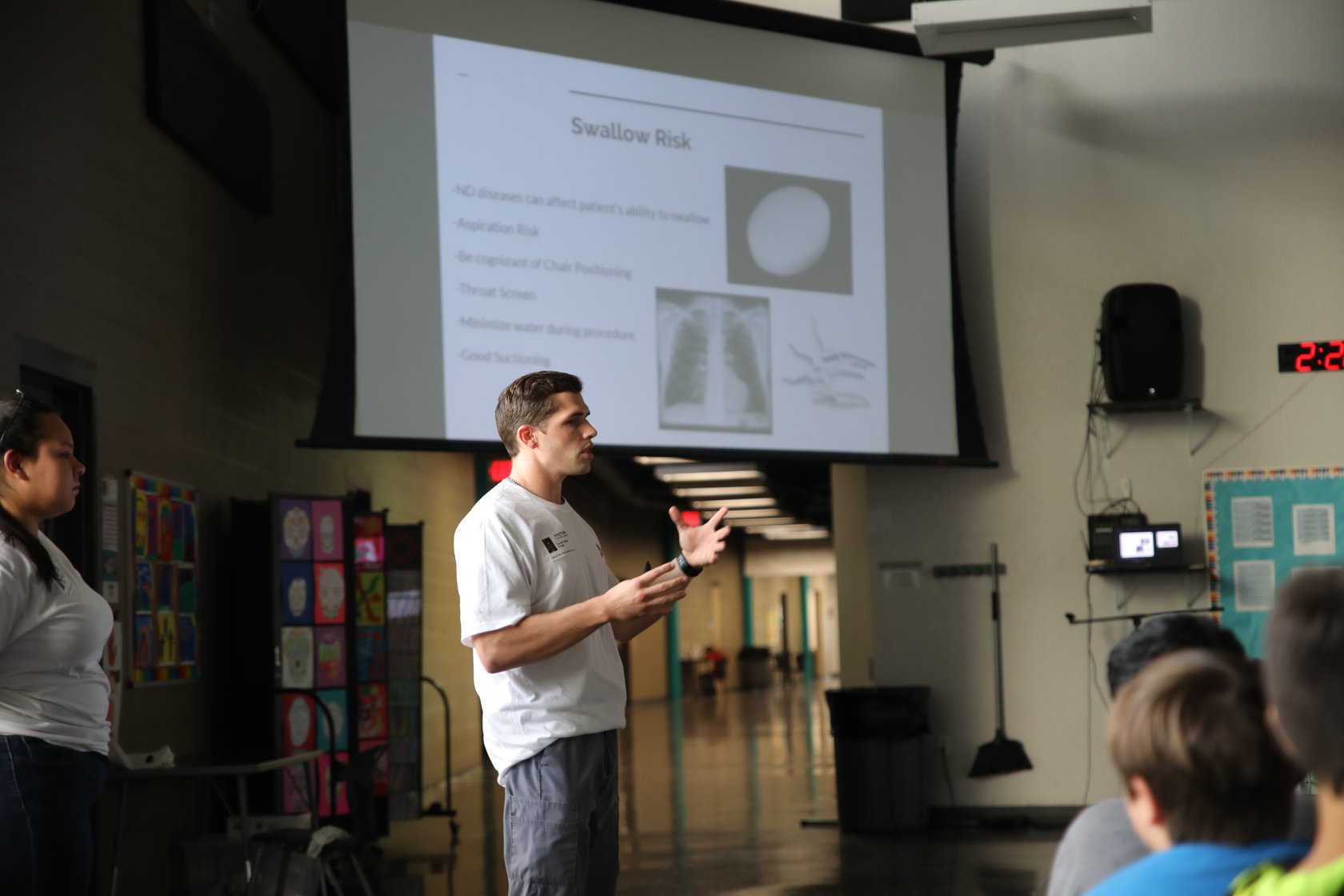
Luke Seiler, a student in the School of Dentistry, explained that when patients with Alzheimer’s disease come in, there are a few things that he can do differently in the clinic to ensure a great experience.
“We know that patients with Alzheimer’s have a greater swallowing risk so we will raise the chair up, we also use less powerful water pressure and offer in-office fluoride treatments because there is an increased risk of periodontal disease because of dry mouth.”
He also recommends that patients with Alzheimer’s disease visit the dentist every three to four months as opposed to every six months just to make sure that their teeth are healthy.
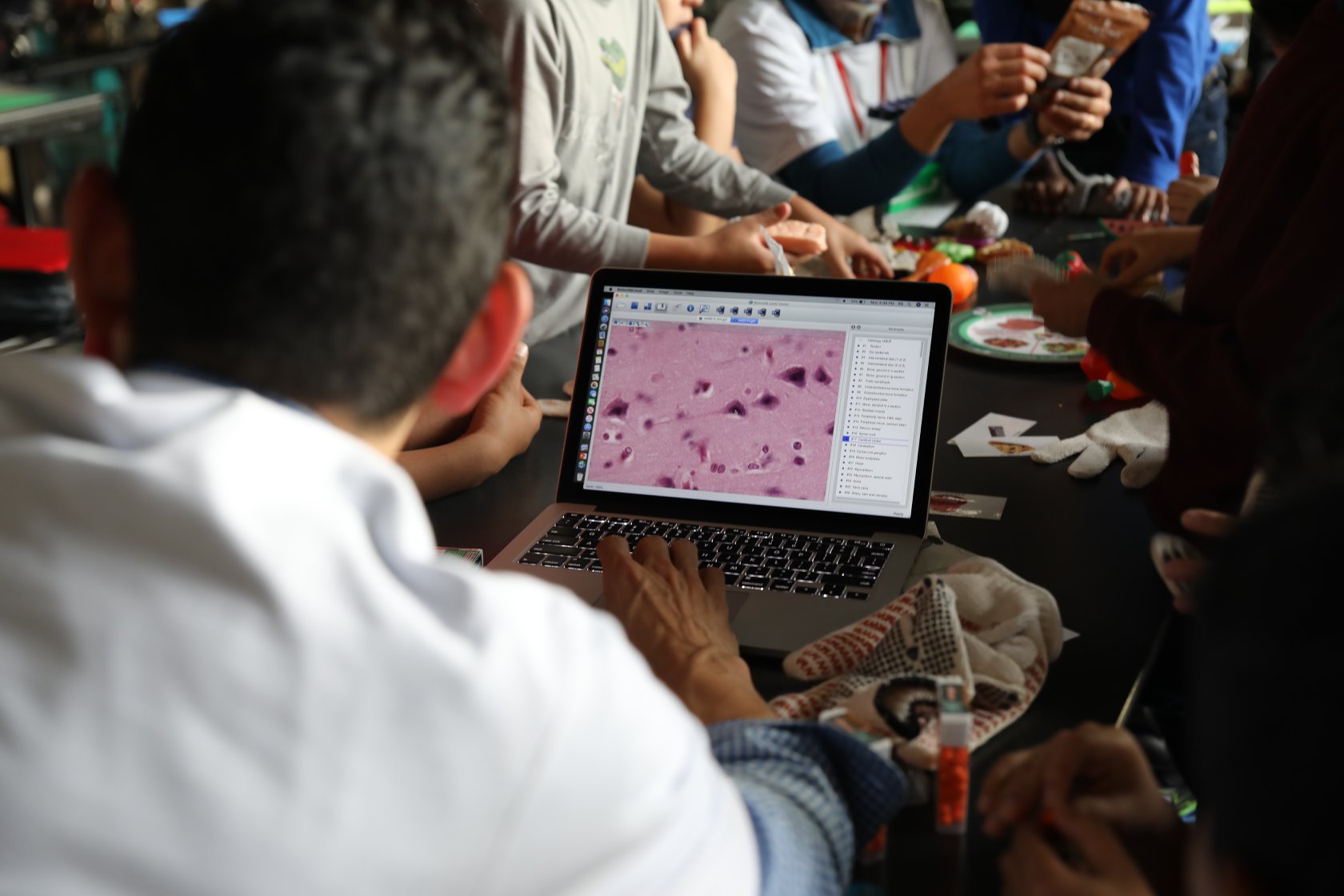
Finally, the students concluded the lesson by hosting tables with a variety of activities such as brain hats, lock/key station, dental models, brain models, healthy food plate, etc.
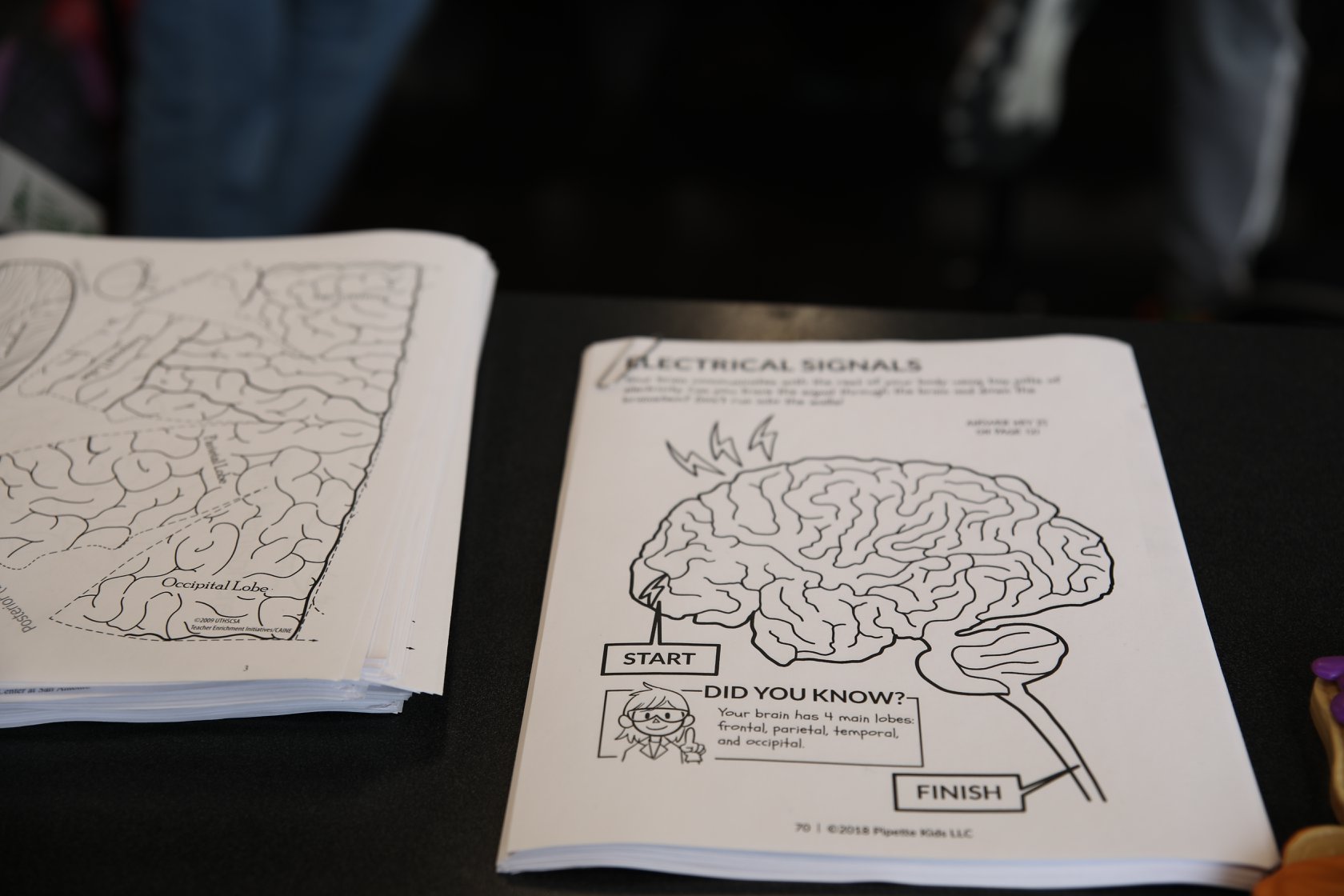
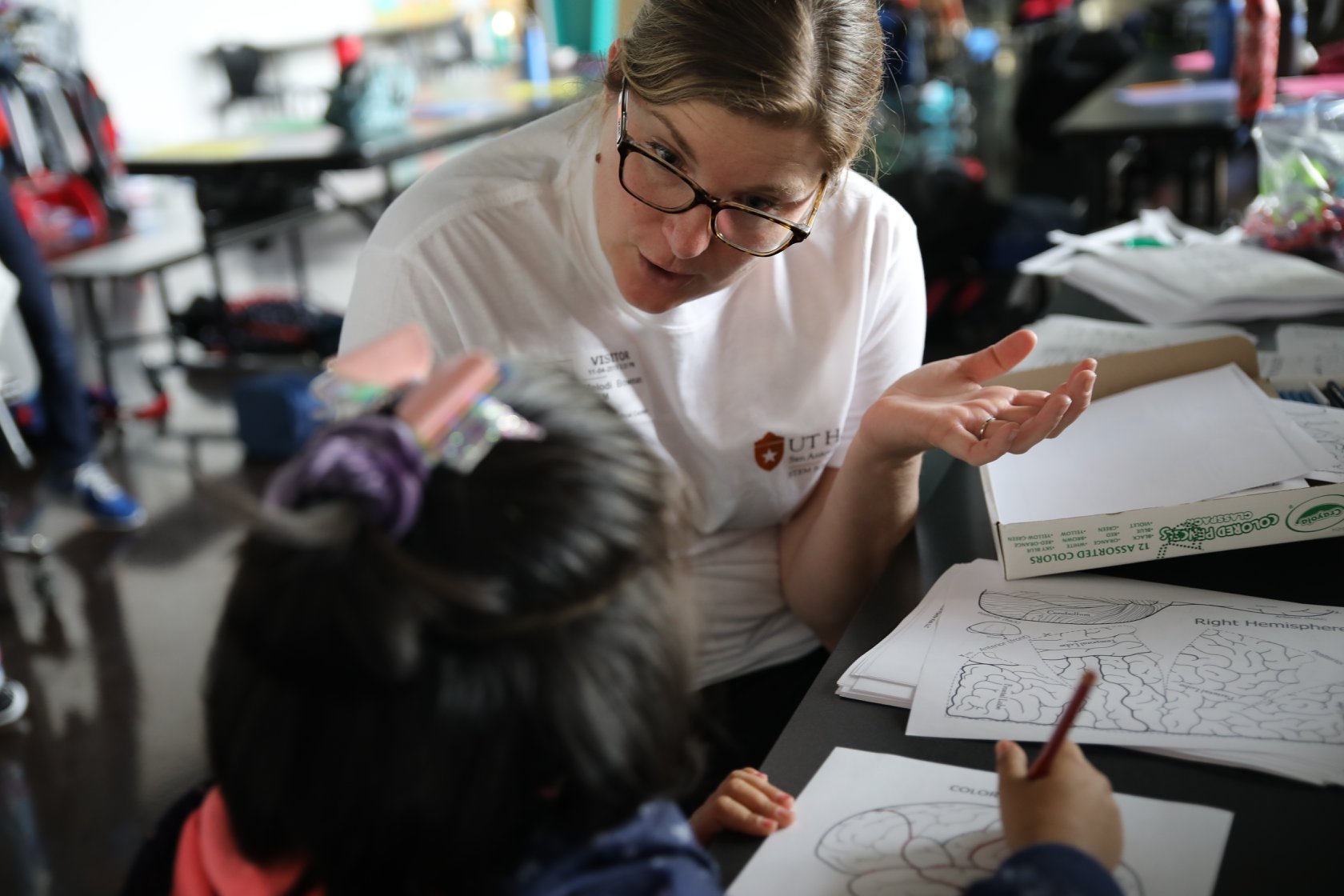
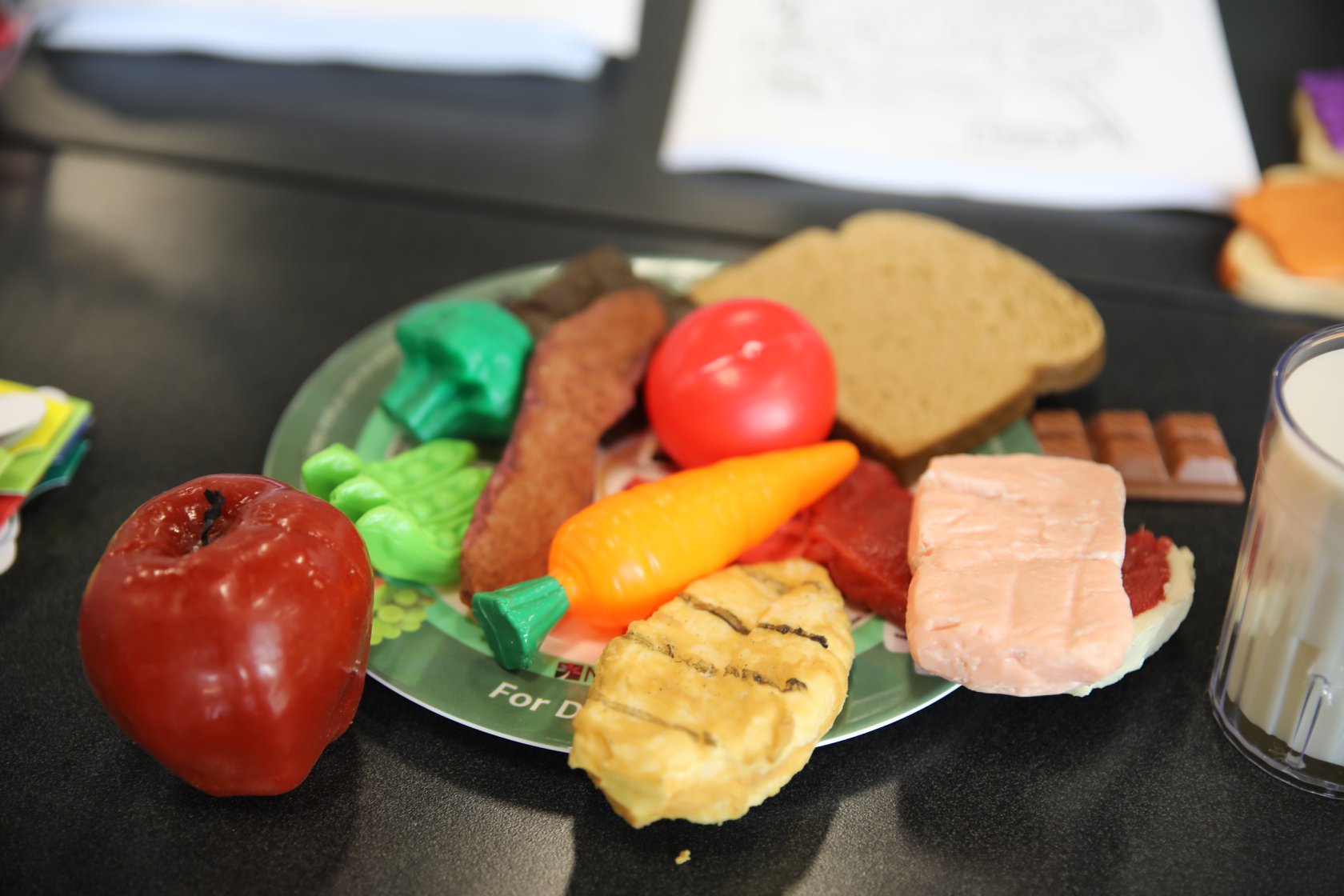
The STEM Scholars Alzheimer’s team included Ayled Maldonado (School of Nursing), Luke Seiler (School of Dentistry), Keaton Shin (School of Dentistry), Kara Hegwood (School of Dentistry), Leen Abazid (Graduate School of Biomedical Sciences), Adrian Beckmann (Graduate School of Biomedical Sciences), Gabrielle Zuniga (Graduate School of Biomedical Sciences), Melodi Bowman (Graduate School of Biomedical Sciences), Sadiya Ahmad (Graduate School of Biomedical Sciences), Ivan Rubalcava (Graduate School of Biomedical Sciences) and Samantha Yee (Graduate School of Biomedical Sciences).
The STEM Scholars Program is funded by a grant from the Student Services Fee Committee to Charlotte Anthony, Marketing Specialist, Graduate School of Biomedical Sciences, Dr. Ramaswamy Sharma, Assistant Professor, Cell Systems and Anatomy, Long School of Medicine and Dr. Irene Chapa, Director, Recruitment & Science Outreach. The program thanks Olga Coronado and Tracy Castillo from the Office of Recruitment and Science Outreach and Dr. Moshtagh Farokhi, Leader of LINC Co-Curricular Initiative, Associate Professor/Clinical, School of Dentistry for their extensive help with organizing and coordinating the presentations and activities.
STEM Scholar Sessions:
Additional Photos:
The STEM Scholars Program, a new interprofessional program at UT Health San Antonio unites dental, medical, nursing,…
Posted by UT Health San Antonio Graduate School of Biomedical Sciences on Tuesday, October 29, 2019
